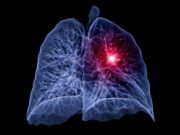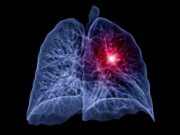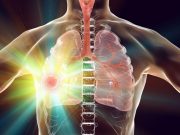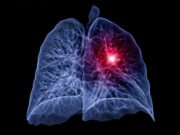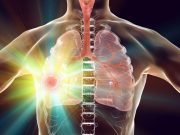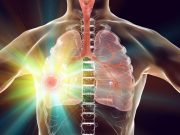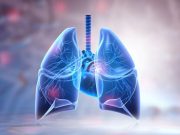Tag: Cancer: Lung
Surgical Treatment Provides Better Long-Term Survival for NSCLC
Findings seen compared with stereotactic body radiotherapy for early-stage disease
Cemiplimab + Chemotherapy Aids Quality of Life With Lung Cancer
Improvement seen compared with chemotherapy alone for first-line treatment of advanced non-small cell lung cancer
Quitting Smoking Early Linked to Lower Mortality After NSCLC Diagnosis
For ever smokers, log2-transformed years since smoking cessation before diagnosis associated with significantly lower mortality
Patient-Centered Approach Recommended for Oligometastatic NSCLC
Integration of definitive local therapy relevant if technically feasible and clinically safe to all disease sites
AACR: Neoadjuvant, Adjuvant Durvalumab Beneficial for NSCLC
Benefits seen in terms of pathologic complete response and event-free survival for resectable non-small cell lung cancer
Johnson & Johnson Agrees to $8.9 Billion Settlement in Talcum Powder Lawsuit
Company plans to stop selling the product globally this year
Hormone Therapy Not Linked to Lung Cancer in Postmenopausal Women
In subgroup analyses, lower risk was seen with cumulative dosage of ≥401 mg or with therapy duration of five years or longer
SBRT Well Tolerated, Effective for Primary Lung Neuroendocrine Tumor
At three, six, and nine years, overall survival was 64, 43, and 26 percent and progression-free survival was 88, 78, and 78 percent, respectively
Positive Five-Year Outcomes Seen for Nivolumab in Resectable Lung Cancer
Eight of nine patients with major pathological response (MPR) were alive and disease-free at five years, while six of 11 without MPR experienced relapse
AI Improves Detection of Actionable Lung Nodules on Chest Radiographs
Improvement observed in detection of actionable lung nodules with no increase in false-referral rates


